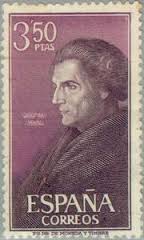Thomas Jefferson
Acosta, José de
 José de Acosta (1540-1600) was a Spanish Jesuit missionary who worked in South America and the Caribbean and is sometimes referred to as the “Pliny of the New World”. Acosta studied the mythologies of the natives of Peru and was convinced that the American Indians had originated in Asia in his Historia natural y moral de las Indias[592]. This view was to gain supporters in the following centuries including Thomas Jefferson.
José de Acosta (1540-1600) was a Spanish Jesuit missionary who worked in South America and the Caribbean and is sometimes referred to as the “Pliny of the New World”. Acosta studied the mythologies of the natives of Peru and was convinced that the American Indians had originated in Asia in his Historia natural y moral de las Indias[592]. This view was to gain supporters in the following centuries including Thomas Jefferson.
>Acosta was highly sceptical of Plato’s Atlantis story, commenting in his ‘Historia’ that “Whether Plato wrote it as history or allegory, what I find obvious is that everything he said about the island, beginning with the dialogue of Timaeus and continuing to the dialogue of Critias cannot be told as true, except to children and old women.”<
A 2002 English translation of his Historia was published by Duke University[965].
